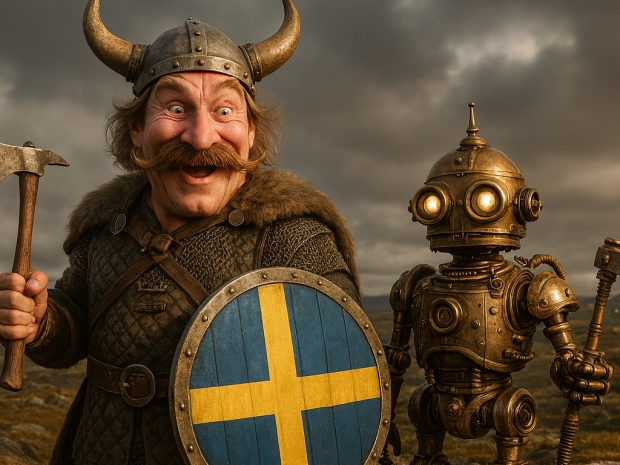The figures come from iGaming software provider Digitain, which poked around AI investment data across 27 European countries, looking at total spending, GDP share, and adoption trends. The company found Sweden throwing $35.1 billion (€32.7 billion) at AI development, the largest commitment anywhere on the continent.
Sweden’s AI usage is expected to rise 140 per cent this year as the technology digs into manufacturing, healthcare, and finance. The report says AI spending represents 0.63 per cent of Sweden’s economy, showing how the country has fully embraced the idea that clever algorithms are the future of work.
Finland follows in second place, with $8.4 billion (€7.8 billion) funnelled into artificial intelligence, amounting to 0.42 per cent of its GDP. Finnish adoption is growing at a solid 59 per cent, showing that the Nordic neighbours are both betting heavily on digital smarts.
Croatia sneaks into third, despite its modest economic size, with AI now accounting for 0.23 per cent of GDP. Zagreb has managed to invest $860 million (€802 million) in AI, while adoption has grown by more than half over the past year.
Further south, Greece has put over $500 million (€466 million) into AI and expects usage to surge by 150 per cent. That pushes the technology’s share of its $282 billion economy to 0.15 per cent, a figure that might finally drag Athens’ tech sector out of its long slumber.
France rounds out the top five with a hefty $16.4 billion (€15.2 billion) in AI funding, or 0.11 per cent of its GDP. While that might not sound much, it still makes France one of Europe’s biggest spenders in raw cash terms. French AI use is also expected to jump 70 per cent this year as adoption spreads through everything from public services to retail.
Down the rankings, the Netherlands, Germany, Denmark, Belgium and Serbia complete the top 10. Serbia in particular stands out, with its AI usage rocketing by a staggering 286 per cent, the fastest rate anywhere in Europe.
Latvia, meanwhile, looks to have hit the snooze button on the AI revolution, spending a meagre $10 million (€9.3 million) over the past two years.
Digitain’s chief sales officer, Ani Mkrtchyan, said Europe risks being left behind in the global AI arms race. “The global AI market is worth around $240 billion today and is projected to hit $1.2 trillion by 2030. US and China control roughly 87 per cent of that market between them,” she said.
“If European countries want a meaningful piece of that $1.2 trillion pie, they need to spend more. The window to catch up is closing fast, and the countries that don't move now will be buying AI technology from American and Chinese companies instead of building their own,” Mkrtchyan said.

